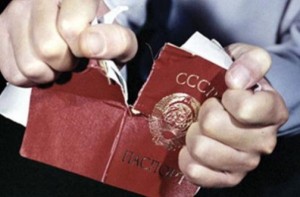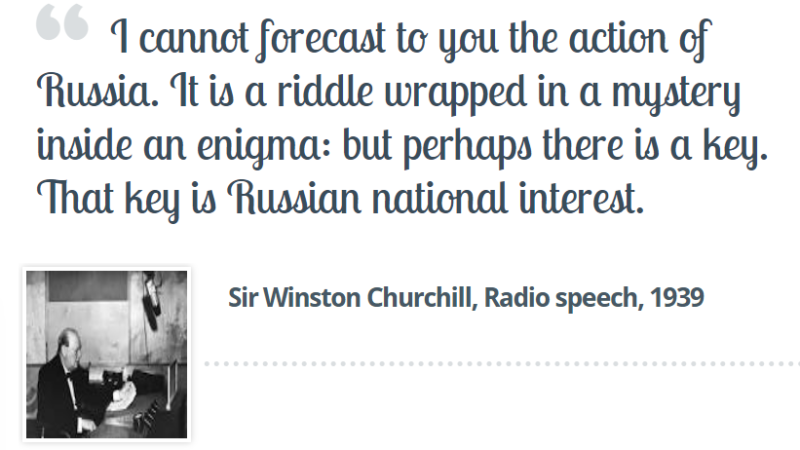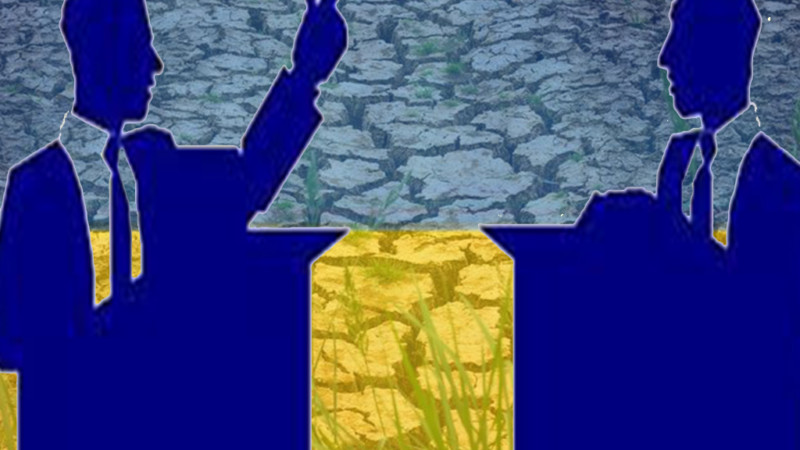Ukraine after Yanukovych
Ukraine after Yanukovych through a Historian’s Eyes
Volodymyr Kravchenko

What we see in Ukraine today is the further dismantling of the Soviet order that took shape back in the times of Leonid Brezhnev. That was the period that saw the formation and rise of most of the present-day Ukrainian political, bureaucratic, and business elite. They include the just-replaced head of the Verkhovna Rada of Ukraine, who is, fortunately, safe and sound; the head of the parliamentary caucus of the Party of Regions; the “tough managers” in charge of the large industrial monopolies in eastern Ukraine, whose production, as has become apparent, fails to meet European standards; and the cynical “businessmen” and communist agitators thrown up by the Young Communist League. Until recently their rhetoric as well as their political culture was just an updated version of the Soviet nomenclatura.
The corruption of Soviet institutions and collective values, already apparent in Brezhnev’s time, which remains a symbol of the “golden age” for many who experienced the Soviet period, was quite protracted and varied in a number of ways across the expanse of the former USSR. In Belarus, authoritarian methods succeeded in halting the disintegration of the Soviet value system and maintaining it for a time, which required a charismatic leader, quite similar to the main protagonist of the Soviet propaganda movie “The Head of the Collective Farm” set in the post-war USSR. In Russia, developments favored a synthesis of traditional Orthodox imperial nationalism and technical modernization; there, too, a charismatic authoritarian leader, a re-incarnation of Yurii Andropov, was found for the task.
It would appear that in Ukraine the erosion of the Soviet institutional system has hit bottom. The provincial, Communist Party, bureaucratic, and business elites in Ukraine began to form an alliance with the criminal element, culminating in the election to political office of individuals with an openly criminal past and, one hopes, just as criminal a future. In the Ukrainian case, authoritarianism turned out to lack any charisma whatever: no wonder Mr. Yanukovych looks and talks like comrade Brezhnev himself. Nevertheless, Ukraine managed to escape somehow its own Andropovs and Gorbachevs.
Every successive Ukrainian president seems to be worse than his predecessor from the viewpoint of professional political and even personal culture. It makes perfect sense that the Yanukovych regime was based on criminalized elements and corrupt structures in the decadent apparatus of government. The lumpen elements now known as titushky, who make their living by doing dirty work against political opponents and rivals in business, have long served as a means of shoring up the crumbling Soviet system. Needless to say, the titushky have always been “socially akin” to the Soviet value system.
It is safe to say that the second cornerstone of the system that has come into being over the past twenty years consists of the so-called “state budgeteers.” They include all kinds of secular and ecclesiastical officials, as well as paid and volunteer propagandists in the teaching and journalistic professions. Even now, their bosses still herd them into meetings and gatherings of every description, keeping them in constant fear of losing their salaries or pensions. Their uneasy association with the criminal element sometimes issues in tragicomedy. One exchange between a pro-government propagandist and a titushka leader in Mariinskyi Park in Kyiv ended with the poor propagandist’s desperate cry for help after he was attacked by fellow titushky: “Topaz, give the order, Topa-a-a-z!” Topaz did not give the order (http://www.youtube.com/watch?v=zI2caMgNXZc). Indeed, why should he have done so?…
Sovietized academia, whose members come from “the people,” has not yet been taught a similar lesson. It continues its slide into moral and professional degradation along with the other segments of the decaying system. Intellectuals and educated people in Ukraine freely elect lucky nouveau riches from the semi-criminal milieu to positions of power. A servile letter written by Kharkiv rectors in support of the Yanukovych regime and its representatives in Kharkiv in 2010 is typically Soviet. There is nothing new about the awarding of academic diplomas and titles to high officials and nouveaux riches, corruption in higher educational institutions, and the simulation of educational innovations and corporate culture.
The political and sociocultural phenomenon of the Ukrainian Maidan remains to be studied, but the reasons for it can already be summed up in a single word: “Enough!” Human nature, after all, is based on conscience, which sometimes wells up even in complete scoundrels and hardened cynics, weakening their inner defenses. From time to time it is aroused by the sight of outrageous injustice or brazen impunity, driving people to acts of desperation. The prelude to current events in Ukraine, whose definition has yet to be worked out, was not Vilnius but Vradiivka, a raion center of Mykolaiv oblast, where ordinary people rose spontaneously against “mayhem”—the criminal acts of bandits holding police ranks—in July 2013.
With Mr. Putin’s aggression against Ukraine Soviet nation’s erosion also has hit bottom. What we see now in Ukraine and Russia is the death of the Soviet nation – “the Soviet people” based on the “friendship of peoples” paradigm. The Soviet phenomenon is sometimes perceived as supranational or even international, in contrast to modern national or local particularism. In fact the Soviet identity to be at least twofold, compounded of both ideological Soviet (communist) and imperial religious Rus’ (Orthodox) elements. Lenin’s communist international utopia and Stalin’s nationalistic blending of modern Soviet and premodern Russian elements laid the foundations for the two respective Soviet myths: the “Great October Socialist Revolution” and the “Great Patriotic War.” The latter finally has supplanted the former and paved the way to its pre-Communist spiritual roots.
Currently, Soviet identity in its Stalinist version is continuing to mutate in the direction of Russian Orthodox imperial nationalism. The ideological foundation of present-day Russian statehood emulates Orthodox imperial nationalism of the times of Tsar Alexander III, with its program of limited modernization, the revival of Muscovite-like autocracy, xenophobia, anti-Semitism, and hatred of intellectualism. The Great Patriotic War mythology has been sacralised by the official church, which is still subordinate to the state. Under the leadership of President Putin, Russia is returning to its ideological roots—official Orthodoxy and autocracy, plus the technical modernization of the country. In search of itself, Russia turned to history and became its hostage. Not for the first time.
In the near future, Russia will remain the principal and implacable political opponent of Ukraine as an independent state. This is mainly because, more than any other country, Russia still needs Ukraine—not only and not so much for economic reasons as for reasons of Russian identity. Since the times of Nikolai Gogol/Mykola Hohol, the Ukrainian component in its Little Russian manifestation has become inextricably embedded in the foundations of Russian Orthodox Slavic nationalism. Zbigniew Brzezinski is right: without Ukraine, Russia cannot remain as it was. The Ukrainian modern idea is a huge crack in the foundations of Russian Orthodox nationalism. Hence it appears Russian hysterical and irrational reaction to the western orientation of Ukraine. It looks like Taras Bulba killing his son who betrayed the Rus’ Slavic-Orthodox brotherhood.
Russia will never accept the idea of a Ukrainian identity separate from the Russian until there is a change in the notion of Russian identity that developed in the second half of the nineteenth century and was preserved under the cover of Marxist-Leninist rhetoric. Such a change is possible, for in Russia, despite the intoxicant of nationalism, there remains a different cultural tradition based on European values—a tradition of liberalism, toleration, cultural dialogue, and modernization. Unfortunately, the voices of its representatives have scarcely made themselves heard in recent times (one has to remember Pussy Riot members whipping by the Russian pseudo-Cossacks in Sochi, as if finalising the closing ceremony of the Olympic Winter Games.)
Ukraine can make use of the intellectual potential of the Russian-speaking Ukrainian citizens in the interests of the struggle “for your freedom and ours.” There is only one condition: official Ukrainian identity policy must be reoriented from the past to the future. As a historian, I make this appeal: enough history! Enough illusions about our “thousand years of nation-state” and “inherent, age-old European identity.” Today’s Ukraine, like Russia, remains a hostage to its past. It suffices to consider the line of political fractures coinciding with the accidental boundaries of regions that took shape in the course of history. It suffices to look at the latest round of monument wars. Is the war really about those windmills? After all, Lenin’s political heirs have long been exchanging his monuments for monuments to Stalin, blessing them with censers and incense as they go. Is it not time to “let the dead bury their dead”?
The idea and the politics of Ukrainian identity need a reset. The only way for Ukraine to rid itself of its historical burden is to reorient its national idea from ethno-cultural and religious symbols to political and secular ones. This does not mean inventing new symbols or proclaiming a second official language and turning a unitary state into a federal one, although that is theoretically possible. What it means is creating conditions for the formation of a Ukrainian political nation. That requires a “daily plebiscite” and a search for consensus. And that in turn requires a dialogue.
A Ukrainian political nation for today, based on European values, should be created by means of a dialogue and a search for sound compromise. I see no other way in a globalized world where the doctrine of traditional national statehood is in deep crisis. The Ukrainian political nation will have to find room for left-wing social and Russian linguistic and cultural components. At the moment, dialogue is more important than outcome. From that point of view, the new authorities’ repeal of the law on regional languages is pregnant with serious political consequences. It does not matter now whether that was a piece of foolishness or a provocation. What is needed now is a dialogue, open and transparent to society as a whole, with the Party of Regions and the Communist Party, and not a ban on their activity concocted behind the scenes. To this day, unfortunately, the Ukrainian elites have not developed a culture of dialogue and compromise. Apparently, it was otherwise engaged.
A renewal and de-Sovietization of the Party of Regions will help it become more contemporary and find new, more adequate leaders capable of speaking in another idiom. Or at least of speaking at all. It could become a party of up-to-date pragmatic professionals, and not of Soviet-era party and economic nomenclatura. Dialogue with the communists, in turn, should be channeled toward reorienting their party ideologically in the direction of Ukrainian national communism. The historical legacy of Soviet Ukrainization of the 1920s and 1960s is an ideological counterweight to the doctrine of Russian Orthodox nationalism. An orientation on social rather than national categories could turn today’s communists into political allies of left-wing programs and parties opposed to the cynical oligarchs who have robbed the country blind.
Today, the Russian language as a symbol of identity has been usurped by Russian nationalists, Orthodox Slavic fanatics, and odious politicians. Ukraine needs a special program of Russian-language identity politics. In the final analysis, how many speakers of English, French, or Chinese are there in today’s world who profess different national identities? How many ethnic Russians are there in the world who belong to the American, Canadian, or French political nations? Russian-speaking Ukrainians dwelling in the industrial megalopolises with an orientation on the European path of development and European values are not a weakness but a source of strength for Ukraine. They need to be given a clear signal that they are “ours.”
Ukraine’s fatal geographic location will not go away. Not, at least, until Russia again sets out on the path of Westernization, as happened periodically in the times of Boris, Peter, and Catherine. Ukraine remains highly vulnerable from every direction, and its geopolitical fate depends largely on Russia and Europe. It cannot be ruled out that closer acquaintance with Europe will bring new disillusionment. For Ukraine, the Association Agreement with the European Union is a symbolic choice of identity with attendant hopes and illusions. For the West, it is just another trade agreement. Regardless of its geopolitical choice, Ukraine will long remain on the periphery. It is only a question of whether that will be the Western or Eastern periphery.
For many, Ukraine remains a highly unpredictable country. That, in turn, attests to the lack of expert knowledge of Ukraine and the need for it in Ukraine and the West alike. It is perfectly obvious that the level and character of academic Ukrainian studies do not measure up to the new intellectual challenges. The traditional range of categories and concepts for the definition of national identity, its boundaries, the phenomenon of regionalism, the civilizational approach, systems of collective values and identities—all this, transposed to Ukrainian soil, needs renewal. Ukrainian studies should become more open to interpretation and more influential in contemporary borderland, geopolitical, national, European, and other studies. But if politicians are to be inspired to demand expert knowledge, a new system of relations between the academic and political communities will be required. In Ukraine as well as in the West.
Volodymyr Kravchenko is Director of the Canadian Institute of Ukrainian Studies and Professor in the Department of History and Classics at the University of Alberta in Edmonton.


